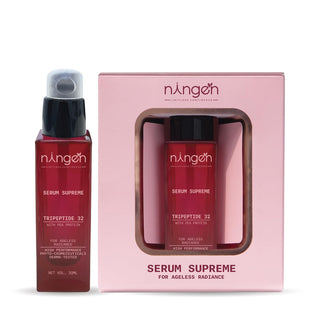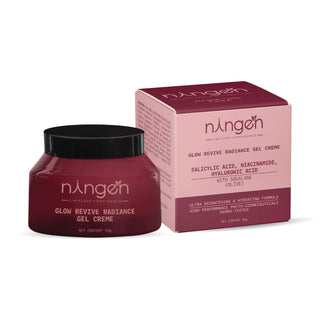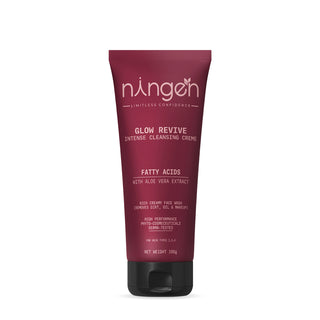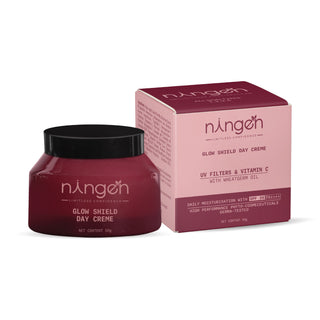TLDR: Dermatologists largely support minimalist skincare routines, citing reduced irritation, better barrier function, and cost-effectiveness. However, they emphasize that "minimal" doesn't mean generic; your routine should still address your specific skin concerns. The key is quality over quantity, with most dermatologists recommending a maximum of 3-5 well-chosen products.
Picture this: It's 800 AM, you’re late for the office, and you're frantically trying to remember whether vitamin C goes before or after Niacinamide. Your dressing table looks like a skincare sale explosion, ₹3,500 Korean essences, unused AHA toners that made your skin angry, and seven different moisturizers gathering dust.
Sound familiar? Between K-beauty obsession and 12-step routines, we've been convinced we need a pharmacy to survive Indian weather. But here's the twist: while you've been collecting serums like cricket cards, Indian dermatologists have been advocating something revolutionary—doing less.
So what exactly do dermatologists say about the minimalist skincare routine trend? Are these experts really backing "less is more" for Indian skin, or is this just another fad that'll vanish faster than your monsoon skincare motivation?
In this Guide;
The Rise of "Skinmalism" in India
What Leading Indian Dermatologists Are Actually Saying
The Common Mistakes Indian Dermatologists See with Minimalist Routines
The Indian Dermatologist's Guide to Building Your Climate-Smart Minimalist Routine
The Future of Skinmalism in India
Climate-Zone Specific Minimalist Routines
The Rise of "Skinmalism" in India: More Than Just a Trend
Before we dive into what Indian dermatologists are saying, let's understand why "skinmalism", the trending term for minimalist skincare, has become such a phenomenon in India. According to recent market research by popular online marketplaces, 72% of Indian consumers report feeling overwhelmed by the number of skincare products available. The average urban Indian owns 15-18 different skincare items but regularly uses only 4-6.
The skinmalism movement represents a conscious shift away from the complex, multi-step routines that dominated social media feeds toward a more intentional, simplified approach that works better for Indian skin conditions.
Dr. Jaishree Sharad, one of India's most respected dermatologists and author of "The Skincare Answer Book," puts it perfectly: "The Indian skincare market has exploded with international brands, but Indian skin has unique needs. More products don't equal better results, especially when you're dealing with pollution, humidity, and intense UV radiation."
Also read: Step-by-step glowing skincare routine
What Leading Indian Dermatologists Are Actually Saying
The Science Behind "Less is More" for Indian Skin
Dr. Kiran Sethi, founder of Isya Aesthetics and a pioneer in Indian dermatology, explains that minimalist routines work particularly well for Indian skin because they reduce the risk of ingredient conflicts and post-inflammatory hyperpigmentation (PIH). "Indian skin is more prone to darkening after irritation. When you layer multiple active ingredients, especially acids and retinoids, you're not just adding benefits—you're multiplying the risk of PIH," she notes.
Here's what recent Indian studies show:
-
Barrier Function in Humid Climates: A 2024 study by AIIMS Delhi found that people using 3-5 products showed 27% better skin barrier function during monsoon season compared to those using 8+ products
-
Less pigmentation issues: 81% of participants saw fewer acne marks after switching to minimalist routines
-
Better Heat Tolerance: Simplified routines showed 35% less heat rash and prickly heat during summer months
The Indian Dermatologist-Approved Minimalist Framework
According to Dr. Madhuri Agarwal, founder of Yavana Aesthetics Clinic in Mumbai, an effective minimalist routine for Indian skin should include:
-
Gentle, pollution-fighting cleanser (AM/PM)
-
Lightweight moisturizer with SPF during the day, hydrating one for the night
-
Broad-spectrum SPF 30+ (non-negotiable for Indian UV levels)
-
One targeted treatment (like kojic acid for pigmentation, niacinamide for oil control, or gentle retinoid for aging)
"That's it," she emphasizes. "Four products maximum can handle everything from Delhi's pollution to Chennai's humidity when chosen correctly for Indian conditions."

The Common Mistakes Indian Dermatologists See with Minimalist Routines
Mistake #1: Ignoring Indian Climate Conditions
Dr. Chytra Anand, a Bangalore-based cosmetic dermatologist, warns against adopting Western minimalist routines without modifications: "A minimalist routine from New York won't work in Chennai's heat or Delhi's pollution. Your minimal routine should still address India-specific concerns."
Mistake #2: Skipping SPF Due to "Minimalism"
Dr. Deepali Bhardwaj from Delhi emphasizes: "I see patients who think minimalist means skipping sunscreen to use fewer products. In India, SPF isn't optional—it's survival. Our UV index regularly hits 11-12."
Mistake #3: Using Wrong Textures for Indian Weather
Dr. Geetika Mittal Gupta from ISAAC Luxe notes: "Heavy creams that work in Korean winter will clog pores in Delhi summer. Minimalism means choosing textures that work with our climate, gel moisturizers for summer, slightly richer ones for winter."

The Indian Dermatologist's Guide to Building Your Climate-Smart Minimalist Routine
Step 1: Identify Your Primary Skin Concern + Climate Challenge
According to Dr. Harish Koutam, Chief Dermatologist at SkinKraft, most Indians have one primary concern combined with climate challenges:
-
Acne + Humidity: Focus on salicylic acid with oil-free formulations
-
Pigmentation + Sun Exposure: Prioritize kojic acid, arbutin, or vitamin C with high SPF
-
Aging + Pollution: Choose antioxidant-rich products with anti-pollution ingredients
-
Sensitivity + Heat: Opt for ceramides and cooling ingredients like aloe
Step 2: The Indian 4-Week Adaptation Protocol
Dr. Koutam recommends this India-specific timeline:
-
Week 1: Start with a gentle cleanser and basic moisturizer only
-
Week 2: Add high-SPF sunscreen (crucial step in India)
-
Week 3: Introduce an active ingredient appropriate to your climate zone
-
Week 4: Adjust textures based on seasonal changes
"This allows your skin to adapt to our climate while building tolerance," he explains.
Step 3: India-Specific Ingredient Selection
Dr. Jaishree Sharad emphasizes looking for ingredients that work well in Indian conditions:
-
Niacinamide: Controls oil in humidity, reduces pigmentation, fights pollution damage
-
Hyaluronic Acid: Provides hydration without heaviness in heat
-
Kojic Acid/Arbutin: Addresses hyperpigmentation common in Indian skin
-
Vitamin C: Fights pollution damage and environmental stressors
The Economics of Minimalist Skincare in India: What Dermatologists Want You to Know
Beyond the skin benefits, Indian dermatologists appreciate the financial advantages. Dr. Kiran Sethi points out: "When patients use fewer products, they can invest in better formulations. A ₹2,000 serum used consistently is more valuable than five ₹500 products that expire unused."
Average annual skincare spending comparison in India:
-
Traditional multi-step routine: ₹40,000-80,000
-
Minimalist routine: ₹12,000-25,000
-
Dermatologist visits needed: 50% fewer with a consistent minimalist approach
Seasonal Adjustments: The Indian Climate Way
One concern about minimalist routines is adaptability to India's extreme seasonal changes. Dr. Chiranjiv Chhabra from Skin Alive Clinic addresses this: "You don't need different routines for each season, just smart product and texture swaps."
Summer adjustments (March-June):
-
Switch to a gel-based, oil-free moisturizer
-
Increase SPF to 50+ with PA++++
-
Use cooling ingredients like aloe or cucumber
Monsoon adjustments (July-September):
-
Lightweight, fast-absorbing products only
-
Antifungal ingredients if prone to fungal acne
-
Waterproof/water-resistant SPF
-
Skip heavy oils that can trap moisture
Winter adjustments (November-February):
-
Slightly richer moisturizer (but still lightweight)
-
Continue high SPF (winter sun is deceiving in India)
-
Layer hydrating toner if needed
Also read: How to know your skin type?
Addressing Common Indian Skin Conditions with Minimalism
Pollution-Damaged Skin
Dr. Nivedita Dadu from Dadu Medical Centre specializes in pollution-related skin damage: "Delhi air quality makes traditional routines ineffective. I recommend double cleansing with gentle products, antioxidant serums, and barrier repair—maximum three steps that actually work."
Post-Acne Hyperpigmentation
For PIH (extremely common in Indian skin), Dr. Soma Sarkar from Derma Solutions recommends targeted minimalism:
-
Morning: Gentle cleanser + Vitamin C serum + SPF 50
-
Night: Same cleanser + Kojic acid or arbutin + hydrating moisturizer
"This prevents over-treatment while effectively fading marks," she explains.
Heat Rash and Prickly Heat
Dr. Monica Chahar from Care Well Medical Centre suggests ultra-minimal summer routines:
-
Light gel cleanser
-
Gel moisturizer with cooling agents
-
High SPF with zinc oxide
The Future of Skinmalism in India: Expert Predictions
Looking ahead, Indian dermatologists predict several trends:
-
Climate-Adaptive Formulations: Products that change texture based on humidity levels
-
Pollution-Fighting Minimalism: Multi-functional products addressing urban Indian concerns
-
Ayurvedic Minimalism: Traditional ingredients in modern, minimal formulations
-
Regional Customization: Different minimal routines for different Indian climate zones
Dr. Rashmi Shetty from Ra Skin and Aesthetics predicts: "The future of skinmalism is about intelligent formulations that address multiple Indian skin concerns in single products. Think pollution protection + hydration + sun protection in one lightweight formula."

Red Flags: When Indian Climate Requires More Than Minimalism
While most dermatologists support minimalist approaches, they recognize when Indian conditions require additional intervention:
Consult an Indian dermatologist if you experience:
-
Persistent melasma worsening during summer months
-
Fungal infections recurring during monsoons
-
Severe pollution-induced breakouts
-
Heat-related skin conditions like polymorphous light eruption
-
Chronic conditions exacerbated by Indian climate
Climate-Zone Specific Minimalist Routines: Dermatologist-Approved Templates
For Hot and Humid Cities (Mumbai, Chennai, Kolkata):
AM:
-
Gentle foaming cleanser
-
Niacinamide 10% serum
-
Gel moisturizer with hyaluronic acid
-
SPF 50+ PA++++ (reapply every 3 hours)
PM:
-
Double cleanse (micellar water + gentle cleanser)
-
Kojic acid or vitamin C (alternate days)
-
Light moisturizer with ceramides
For Hot and Dry Cities (Delhi, Jaipur, Ahmedabad):
AM:
-
Cream cleanser (non-foaming)
-
Vitamin C serum with hyaluronic acid
-
Moisturizer with barrier-repair ingredients
-
SPF 50+ with zinc oxide
PM:
-
Same cleanser
-
Retinol (2x per week) or arbutin (daily)
-
Heavier moisturizer with ceramides and peptides
For Moderate Climate Cities (Bangalore, Pune):
AM:
-
Gentle gel cleanser
-
Niacinamide or vitamin C serum
-
Lightweight moisturizer
-
SPF 40+ PA+++
PM:
-
Same cleanser
-
Active ingredient (retinol/kojic acid/AHA - alternate)
-
Balanced moisturizer
Expert Tips for Maximizing Your Indian Minimalist Routine
Dr. Apratim Goel, founder of Cutis Skin Studio, shares his top tips for Indian conditions:
-
Timing is Everything: "Apply products 15 minutes before stepping out—Indian humidity needs time for absorption."
-
Texture Matters: "Gel > cream in summer, lightweight cream > heavy cream in winter"
-
Patch Test in Your Climate: "What works in AC indoors might react differently in outdoor heat."
-
Storage Awareness: "Keep products in cool, dry places—Indian heat can destabilize formulations."
-
Seasonal Product Cycling: "Buy smaller sizes and change textures with seasons rather than hoarding large bottles."
Addressing the Indian Beauty Myth: Fair vs. Healthy
Dr. Madhuri Agarwal addresses a crucial point: "Minimalist skincare in India shouldn't be about achieving fairness—it should be about healthy, resilient skin that can handle our environmental challenges. The goal is even-toned, clear skin, not necessarily lighter skin."
Indian dermatologists emphasize:
-
Sun protection prevents darkening; they are not lightening products
-
Even skin tone matters more than fair skin tone
-
Healthy barrier function creates a natural glow
-
Consistency beats expensive imported products
The Bottom Line: What Indian Dermatologists Really Want You to Know
Here's the truth: Indian dermatologists aren't just jumping on the skinmalism bandwagon—they're leading it. Why? Because they see the results every day in their clinics.
Dr. Jaishree Sharad puts it best: "Your skin doesn't need 15 Korean steps or 10 European acids. It needs smart protection from our sun, pollution, and humidity with gentle, effective ingredients. Skinmalism delivers exactly that."
The verdict is clear:
-
Climate-smart beats ingredient-trendy every single time
-
SPF is your best friend in Indian conditions (seriously, don't skip it)
-
Reduced irritation equals less pigmentation (a huge win for Indian skin!)
-
Consistency trumps complexity in our unpredictable weather
Whether you're dealing with Delhi's pollution or Chennai's humidity, healthy skin isn't about having the most products—it's about having the right ones that actually work for your life.
So, what do you think? Are you ready to give skinmalism a try, or are you still attached to your 12-step routine? Drop a comment below and let us know—have you tried minimalist skincare before? What worked (or didn't work) for you? We'd love to hear your experiences and answer any questions you might have!
Frequently Asked Questions
Q1. How long does it take to see results from a minimalist skincare routine in Indian weather?
Most Indian dermatologists agree that you'll start seeing improvements in skin tolerance and reduced irritation within 2-3 weeks, especially during climate transitions. However, significant changes in concerns like pigmentation typically occur after 8-10 weeks of consistent use. Dr. Jaishree Sharad notes that Indian skin's response to simplified routines is often faster due to reduced irritation from over-layering products in heat and humidity.
Q2. Can minimalist skincare routines address serious Indian skin concerns like melasma and post-acne pigmentation?
Yes, according to Dr. Kiran Sethi, minimalist routines can effectively address major Indian skin concerns when the right ingredients are chosen. For melasma, focus on kojic acid or arbutin with strict sun protection; for post-acne marks, combine niacinamide with vitamin C. The key is selecting potent, proven ingredients rather than multiple untested combinations that can worsen pigmentation.
Q3. Is minimalist skincare suitable for all Indian skin tones and types?
Dr. Madhuri Agarwal confirms that minimalist routines work for all Indian skin types, but products must be carefully selected for our climate conditions. Oily skin in humid cities benefits from gel-based, oil-free formulations, while those in dry climates need lightweight creams. The approach works regardless of skin tone, often better preventing the post-inflammatory hyperpigmentation common in Indian skin.
Q4. How much should I spend on a minimalist skincare routine in India?
Indian dermatologists suggest budgeting ₹12,000-25,000 annually for a quality minimalist routine, including regular sunscreen replenishment. Dr. Deepali Bhardwaj emphasizes that investing in fewer, climate-appropriate products is more effective than buying multiple international products unsuited to Indian conditions. A well-formulated ₹2,000 serum often outperforms five ₹400 products that don't work in our weather.
Q5. What's the biggest mistake Indians make when starting minimalist skincare?
According to Dr. Chiranjiv Chhabra, the most common mistake is adopting Western or Korean minimal routines without considering the Indian climate needs. Many people eliminate essential steps like double cleansing (crucial for pollution) or reduce SPF usage, thinking it's "less minimal." He emphasizes that Indian minimalism means climate-smart, not just fewer products.
Q6. Can I use minimalist skincare during monsoon season when humidity is extreme?
Dr. Nivedita Dadu recommends ultra-minimalist approaches during monsoons. She suggests just three products: gentle foaming cleanser, lightweight niacinamide serum, and gel moisturizer with antifungal properties. Heavy layering during monsoons often leads to fungal acne and clogged pores, making minimalism ideal for this season.
Q7. Do I need different minimalist routines for different Indian cities?
Most dermatologists agree on core principles but recommend texture adjustments. Dr. Monica Chahar explains that Mumbai needs more oil-control focus, Delhi requires stronger pollution protection, and Bangalore allows for more flexibility. The basic structure remains the same—cleanser, treatment, moisturizer, SPF—but formulation weights change based on local climate.
Q8. How do I know if my minimalist routine is working in Indian conditions?
Dr. Soma Sarkar suggests looking for these India-specific signs: reduced heat rash during summer, less product pilling in humidity, fewer breakouts during pollution spikes, and, importantly, no worsening of pigmentation. She recommends taking photos in consistent lighting every two weeks, as daily changes can be subtle but cumulative improvements significant.
Q9. Can I incorporate Ayurvedic ingredients in a minimalist routine?
Absolutely. Dr. Rashmi Shetty notes that traditional Indian ingredients like turmeric, neem, and sandalwood work excellently in minimalist formulations. Modern brands are creating concentrated serums with these ingredients that address multiple concerns—perfect for minimalist approaches while honoring Indian skincare wisdom.
Q10. What should I do if my minimalist routine isn't giving results after the monsoon/summer season?
Dr. Harish Koutam recommends first checking if you've maintained consistency through weather changes (many people skip routines during extreme weather). If results are still unsatisfactory after a full season, consult an Indian dermatologist familiar with local conditions, you might need prescription treatments for climate-induced concerns that OTC products can't address, like severe melasma or chronic heat rash.
Sources and References:
-
Indian Association of Dermatologists, Venereologists and Leprologists (IADVL)
-
AIIMS Delhi Dermatology Department Studies, 2024
-
Indian Journal of Dermatology Research Publications
-
All India Institute of Medical Sciences Clinical Studies
-
Indian Council of Medical Research Skin Studies
-
Mumbai Dermatology Society Guidelines
-
Delhi Pollution and Skin Health Research, 2024
This article is for informational purposes only and does not replace professional medical advice. Always consult with a qualified dermatologist familiar with Indian skin types and climate conditions for personalized skincare recommendations.












